Preschool Social Milestones: Complete Guide to Development (Ages 3-5)
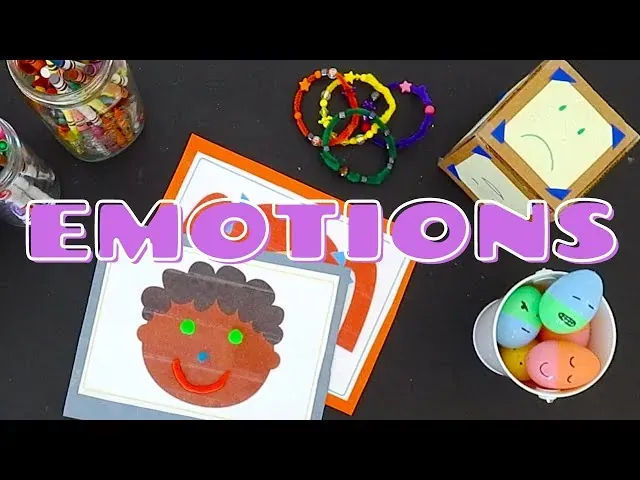
Social-emotional learning activities help preschoolers develop crucial life skills through engaging interactions
Understanding preschool social milestones is crucial for your child’s development. As an experienced early childhood educator, I’ll guide you through the essential social and emotional milestones that shape your preschooler’s growth from ages 3 to 5.
Whether you’re looking to help children develop strong social skills or wanting to understand developmental delays, this guide for families with children will help you make a big difference. Trust me, I’ve been there – both as a teacher and as a parent – and I’m here to share everything I’ve learned about these critical social-emotional milestones.
? Key Preschool Social Milestones Covered:
- ✓ Essential social milestones for ages 3-5
- ✓ Emotional development benchmarks
- ✓ Social competency indicators
- ✓ Development tracking resources
- ✓ Interactive milestone activities
Preschool Social Milestones Guide Contents
- Understanding Preschool Social Milestones
- Essential Preschool Social Milestones (Ages 3-5)
- Supporting Your Child’s Social Milestones
- Identifying Delays in Social Milestones
- Early Education’s Role in Social Milestones
- Building Social Skills Through Relationships
- Key Takeaways and Resources for Social Milestones
Understanding Preschool Social Milestones
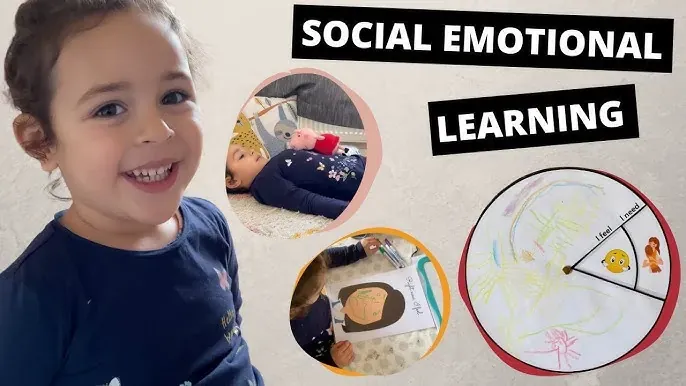
Children learning to express and understand emotions through guided activities
What is Social-Emotional Development?
Let me break this down in the way I explain it to new parents at our preschool orientation. Social-emotional development is like building a house – you need a solid foundation before you can add the walls and roof. It’s all about how children learn to understand their own feelings, respond to others’ emotions, and build relationships. I remember working with little Sarah (name changed), who started in my class barely able to say “hi” to her peers. By the end of the year, she was organizing playground games and helping resolve conflicts between friends!
Through my years of experience, I’ve learned that social-emotional development includes several key components: self-awareness, relationship skills, responsible decision-making, social awareness, and self-management. These aren’t just fancy terms we educators throw around – they’re real skills I see developing in children every single day.
You know what’s fascinating? Each child develops these skills at their own pace. I had twins in my class once – night and day difference in how they developed socially! One was Mr. Social Butterfly from day one, while his sister took her sweet time warming up to the group. Both paths were completely normal, and they both ended up with strong social skills by kindergarten.
Why is Social-Emotional Development Important in Preschoolers?
I can’t tell you how many times I’ve had parents focus solely on ABC’s and 123’s, only to later realize that social-emotional skills are the real MVPs of early childhood development. These skills are literally the foundation for everything else! Think about it – how can a child learn effectively if they can’t manage their emotions or work with others?
Here’s what I’ve seen firsthand: kids with strong social-emotional skills are better at making friends, solving problems, and even learning academic concepts. They’re more likely to speak up when they need help, share materials during activities, and bounce back from disappointments. These are the skills that make the difference between struggling and thriving in kindergarten.
One of my favorite success stories involves a little boy who started the year throwing tantrums whenever things didn’t go his way. Through consistent emotional coaching and lots of practice with social skills, he transformed into someone who could use his words to express frustration and negotiate with peers. That’s the power of social-emotional development!
How Does Social-Emotional Development Impact Future Learning?
Let me share something that blew my mind when I first started teaching: research shows that social-emotional skills are actually better predictors of academic success than early reading or math skills. Wild, right? But after 15 years in the classroom, I’ve seen this play out countless times.
I had a student who could recite the alphabet backwards (impressive, I know!) but struggled to work in groups or handle frustration. Guess what caused more challenges in kindergarten? It wasn’t the academics – it was the social-emotional pieces. On the flip side, I’ve seen kids enter preschool with limited academic exposure but strong social-emotional skills absolutely flourish once they started formal learning.
The impact goes way beyond the early years too. These skills lay the groundwork for things like:
- ✓ Better academic performance
- ✓ Stronger relationships with peers and teachers
- ✓ Higher self-esteem and confidence
- ✓ Better problem-solving abilities
- ✓ Increased resilience when facing challenges
Supporting Your Child’s Social Milestones
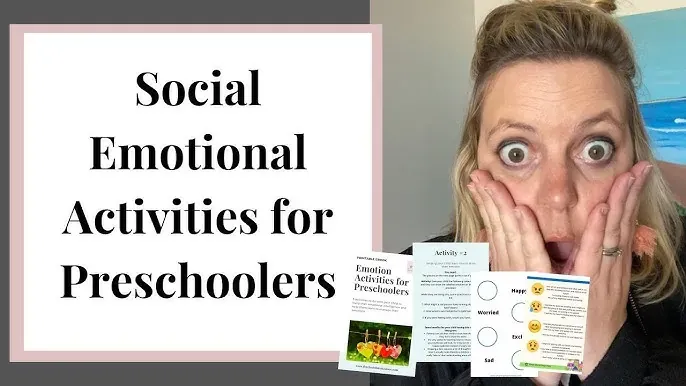
Parents play a crucial role in supporting their child’s social-emotional development through daily interactions
What Activities Can Foster Social Skills in Young Children?
After years of working with preschoolers, I’ve gathered quite the toolkit of activities that really work for building social skills. One of my absolute favorites – which I actually discovered by accident when we had a rainy day – is the “feelings theater.” We use simple puppets to act out different social situations, and let me tell you, the kids eat it up!
? Top 5 Social Skill-Building Activities:
- Turn-Taking Games: Simple board games or ball-passing activities
- Emotion Charades: Acting out and guessing different feelings
- Cooperative Art Projects: Group murals or partner painting
- Pretend Play Stations: Kitchen, store, or doctor’s office setups
- Story Time with Discussion: Books about feelings and friendships
How Can Parents Model Healthy Social Behaviors?
You know what I always tell parents at our first conference? “Your kids are watching you like tiny hawks!” It’s true – I’ve had countless moments where a child has mimicked exactly how their parent handles a situation, for better or worse. One time, a little girl resolved a conflict with her friend using the exact phrases her mom uses during playdate disputes!
? Everyday Modeling Opportunities:
- ✓ Use “please” and “thank you” consistently
- ✓ Show how to apologize when you make mistakes
- ✓ Demonstrate active listening when others speak
- ✓ Express your own feelings appropriately
- ✓ Show empathy when others are upset
What Role Does Playtime Have in Social Development?
Let me share a little secret from my classroom: some of the most powerful teaching moments happen during what looks like “just play.” I remember this one instance where two kids were having an epic disagreement over who got to be the doctor in the pretend hospital. Instead of jumping in to solve it, I watched them work it out by creating a “partner doctor” system. Talk about a proud teacher moment!
? Types of Play That Boost Social Skills:
| Play Type | Social Skills Developed |
|---|---|
| Pretend Play | Role-playing, empathy, communication |
| Cooperative Games | Turn-taking, following rules, teamwork |
| Group Projects | Collaboration, sharing, problem-solving |
| Free Play | Natural interaction, conflict resolution |
? Daily Social Development Checklist for Parents:
- □ Provide opportunities for peer interaction
- □ Engage in pretend play with your child
- □ Practice turn-taking during daily activities
- □ Talk about feelings during daily routines
- □ Read books about friendship and emotions
- □ Create situations for sharing and cooperation
- □ Model appropriate social interactions
- □ Celebrate social successes, no matter how small
Identifying Delays in Social Milestones
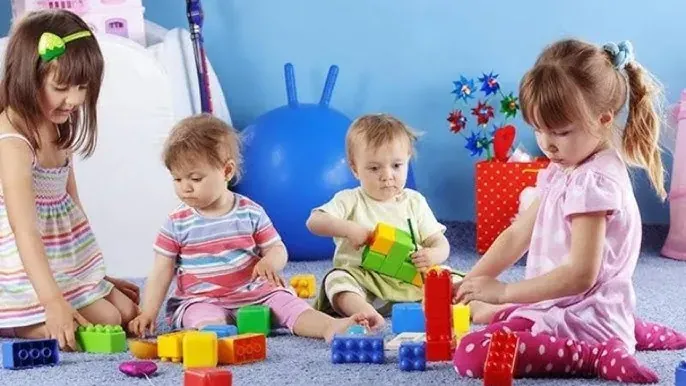
Early intervention and appropriate activities can help address developmental concerns
What Signs Indicate a Delay in Social Skills?
Let me start by saying something super important: every child develops at their own pace, and that’s perfectly okay! But after working with hundreds of preschoolers, I’ve learned to recognize certain patterns that might suggest a child needs extra support. I remember one student who really opened my eyes to this – he was incredibly bright with numbers but struggled with basic social interactions. It turned out he needed some extra help with social skills, and once we identified that, we could provide the right support.
? Potential Signs to Watch For:
- ⚠️ Consistent difficulty with sharing or taking turns
- ⚠️ Limited or no interest in other children
- ⚠️ Trouble recognizing or responding to others’ emotions
- ⚠️ Difficulty following simple social rules
- ⚠️ Extreme difficulty with transitions or changes in routine
- ⚠️ Limited or no engagement in pretend play
Note: These signs don’t necessarily indicate a problem, but they’re worth discussing with your child’s healthcare provider or teacher.
How Can Parents Address Concerns About Their Child’s Social Development?
I’ve sat through countless parent conferences where moms and dads were worried about their child’s social development. Here’s what I always say: “Being concerned means you’re paying attention, and that’s a good thing!” The key is to take action in a way that supports your child while getting the right professional input when needed.
? Steps to Take When Concerned:
- Document Observations:
- Keep a simple diary of social interactions
- Note specific situations that seem challenging
- Track progress over time
- Talk with Teachers:
- Share your observations
- Ask about classroom behavior
- Discuss potential strategies
- Consult Professionals:
- Schedule a check-up with your pediatrician
- Consider early intervention evaluation
- Explore developmental screening options
When Should Parents Seek Professional Help?
This is probably one of the toughest questions I get from parents. Nobody wants to overreact, but we also don’t want to miss important windows for early intervention. I always think about this one child who made incredible progress once we got him the right support – his parents later told me they wished they’d asked for help sooner.
? Consider Professional Evaluation If Your Child:
- ✓ Shows little to no interest in social interaction by age 3
- ✓ Has persistent difficulty with emotional regulation
- ✓ Demonstrates significant regression in social skills
- ✓ Shows extreme anxiety in social situations
- ✓ Has trouble forming any friendships by age 4
- ✓ Consistently struggles with basic social norms for their age
? Helpful Resources for Parents:
- ? Early Intervention Services (Birth to 3 years)
- ? School District Special Education Services (3+ years)
- ?⚕️ Developmental Pediatricians
- ? Social Skills Groups
- ? Parent Support Groups
Remember: Early intervention can make a significant difference in your child’s development!
Early Education’s Role in Social Milestones
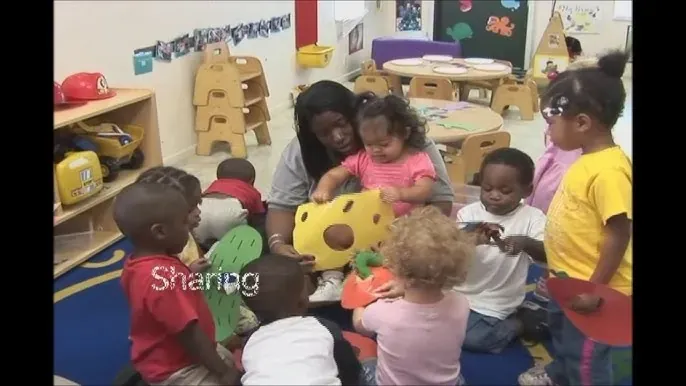
Teachers implementing effective strategies to support social-emotional learning in the classroom
How Do Preschool Programs Support Social-Emotional Growth?
You know what’s amazing about preschool? It’s like a little laboratory for social skills! In my classroom, we create what I call a “social skills greenhouse” – a safe space where children can practice and grow their social-emotional abilities. Every activity, from morning circle time to cleanup, is an opportunity for social learning.
? Key Ways Preschool Supports Social Development:
- ✓ Structured opportunities for peer interaction
- ✓ Guided practice in conflict resolution
- ✓ Regular exposure to group dynamics
- ✓ Professional observation and support
- ✓ Consistent routines and expectations
- ✓ Diverse social experiences
What Types of Activities Are Effective in Preschool Settings?
Let me share one of my favorite classroom success stories. We had this fantastic “friendship station” where kids could go to work out their differences. At first, they needed lots of teacher support, but by the end of the year, they were using their “peace talk” words all on their own! It was absolutely incredible to watch their progress.
? Proven Preschool Activities for Social Development:
| Activity Type | Skills Developed | Example |
|---|---|---|
| Circle Time | Listening, turn-taking | Show and Tell |
| Group Projects | Cooperation, sharing | Class Mural |
| Dramatic Play | Role-playing, empathy | Restaurant Corner |
| Problem-Solving Games | Critical thinking, teamwork | Building Challenges |
How Can Teachers Encourage Positive Social Interactions?
One of my favorite teaching strategies is what I call the “pause and guide” approach. Instead of jumping in to solve every little conflict, I’ve learned to pause and give kids a chance to work things out themselves. Of course, I’m right there to guide them if needed, but it’s amazing how capable they become when given the opportunity!
?? Effective Teaching Strategies:
- Model Positive Interactions:
- Use respectful language
- Show active listening
- Demonstrate problem-solving
- Create Supportive Environments:
- Set up collaborative spaces
- Establish clear routines
- Post visual reminders
- Implement Teaching Tools:
- Use social stories
- Create role-play scenarios
- Utilize puppet play
? Signs of Successful Social-Emotional Learning in Preschool:
- ✓ Children initiating positive interactions
- ✓ Decreased need for teacher intervention
- ✓ More complex cooperative play
- ✓ Improved emotional vocabulary
- ✓ Better conflict resolution skills
- ✓ Increased empathy and understanding
Essential Preschool Social Milestones (Ages 3-5)
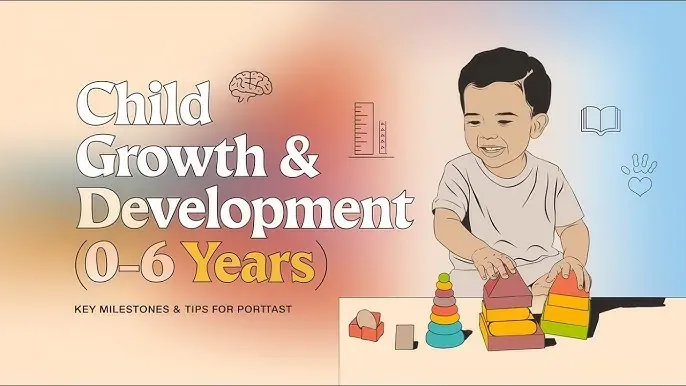
Understanding key developmental milestones helps parents and educators support children’s growth
Social and Emotional Milestones for 3-Year-Olds
At this stage, children are starting to understand others and learn to communicate in more complex ways. Preschoolers need consistent support as they develop friendships and learn to explore their environment. One little guy in my class went from parallel play to being able to engage with others and play with peers in what felt like overnight!
Key Milestones at Age 3:
- ✓ Beginning to take turns and follow simple rules and directions
- ✓ Showing interest in interactive play with other children
- ✓ Starting symbolic play and imaginative play scenarios
- ✓ Developing language skills and speech and language abilities
- ✓ Learning to get their needs met in safe ways
Supporting Your Child’s Development:
- • Ask questions like “How do you feel?” to encourage emotional expression
- • Give your child opportunities to practice social skills at the table at meals
- • Help them build confidence by trying new things
- • Create a nurturing environment for learning
- • Practice taking deep breaths during challenging moments
Social and Emotional Health Progress at Age 4
By 4 years old, preschoolers progress significantly in their social and emotional skills. They’re developing positive relationships that lay the foundation for success in life. Children must learn to explore their emotions while building play skills and understanding basic concepts like recognizing colors, shapes and letters.
Developmental Progress to Watch For:
- ✓ Increased ability to determine if their child-sized goals are achievable
- ✓ Growing capacity to feel valued and understand others’ emotions
- ✓ Development of relationships with others through play
- ✓ Enhanced social and language development
- ✓ Ability to say things like “I’m angry” or “I’m happy”
Development Timeline:
- • 15 months of age: Basic social interactions
- • 16 months of age: Early language development
- • 3-5 years: Complex social and emotional skills
Note: While these milestones may pose some challenges, remember that each child develops at their own pace.
Building Social Skills Through Relationships
How Can Playdates Enhance Social Skills?
Let me tell you about something magical that happened during one of our classroom playdates. Two kids who barely spoke to each other discovered they both loved building with blocks. By the end of the playdate, they had created this amazing “super castle” and were planning their next building project together! That’s the power of structured playdates – they create natural opportunities for connection.
? Playdate Success Strategies:
- ✓ Start with short, structured playdates (1-2 hours max)
- ✓ Choose activities that encourage cooperation
- ✓ Have a few backup activities ready
- ✓ Create a quiet space for breaks if needed
- ✓ End on a positive note with a fun wrap-up activity
What Are the Benefits of Group Activities for Preschoolers?
In my years of teaching, I’ve noticed that group activities are like little social skill bootcamps – but way more fun! One of my favorite activities is our “friendship garden” where each child plants a flower and has to help care for their neighbors’ plants too. It’s amazing how concepts like cooperation and responsibility just naturally bloom in these settings.
? Benefits of Group Activities:
| Benefit | Real-World Application |
|---|---|
| Team Collaboration | Working together on art projects |
| Leadership Skills | Taking turns being the line leader |
| Conflict Resolution | Sharing limited resources |
| Emotional Intelligence | Supporting upset peers |
How Do Sibling Relationships Impact Social Development?
Siblings are like built-in social skills coaches – though sometimes it might not feel that way when they’re arguing over the last cookie! I’ve seen firsthand how children with siblings often bring different social strategies to the classroom. They’re usually pros at negotiation (even if it’s about who gets the blue crayon) and understanding different perspectives.
??? Sibling Relationship Benefits:
- ✓ Natural practice in sharing and turn-taking
- ✓ Built-in conflict resolution opportunities
- ✓ Constant emotional regulation practice
- ✓ Learning to adapt to different personalities
- ✓ Development of empathy and caregiving skills
Resources for Parents and Caregivers
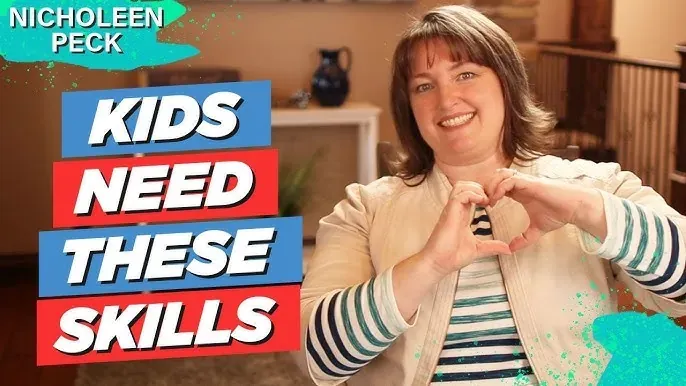
Parents and caregivers can access various resources to support their child’s social-emotional development journey
Resources for Michigan Parents
MiKidsMatter has checklists and comprehensive resources to help children to be socially and emotionally competent. These tools are specifically designed for families with children birth to age 8, making it easier to track and support your child’s development.
Available Resources Include:
- ✓ Developmental milestone checklists
- ✓ Social and emotional health guidelines
- ✓ Language development tracking tools
- ✓ Interactive play suggestions
- ✓ Tips for reaching milestones
Professional Support Options
The American Academy of Pediatrics recommends regular developmental screenings to help parents understand their child’s progress. Want to help children reach their full potential? Consider these professional resources:
- ?⚕️ Pediatrician check-ups
- ?? Early childhood education specialists
- ?️ Speech and language pathologists
- ❤️ Social-emotional development experts
Activities to Support Development
Here are some safe ways to support your child’s social and emotional growth:
| Age Range | Activities | Skills Developed |
|---|---|---|
| Birth to Age 3 | Peek-a-boo, singing, reading | Basic social interaction, emotional bonding |
| Ages 3-5 | Pretend play, group games | Social skills, emotional regulation |
| School Age | Team sports, group projects | Complex social interactions |
Key Takeaways and Resources for Social Milestones
? Essential Points to Remember:
- ✓ Social-emotional development is crucial for overall success
- ✓ Each child develops at their own unique pace
- ✓ Early intervention makes a significant difference
- ✓ Play is a powerful tool for social learning
- ✓ Consistent support and guidance are key
Frequently Asked Questions
Q: What are two social milestones for a preschooler?
A: Key social milestones include taking turns during play and engaging in cooperative activities with peers. These skills typically develop between ages 3-5 and form the foundation for more complex social interactions.
Q: What are four emotional milestones for preschoolers?
A: Important emotional milestones include: 1) expressing a wide range of emotions verbally, 2) showing empathy for others, 3) beginning to regulate emotions with support, and 4) developing strategies for handling frustration.
Q: How can I support my child’s social-emotional development at home?
A: Create opportunities for social interaction through playdates, model emotional expression, use positive reinforcement, and maintain consistent routines. Remember to celebrate small progress and provide a safe space for emotional expression.
Final Thoughts
After 15 years in early childhood education, I can tell you with absolute certainty that supporting social-emotional development is one of the greatest gifts we can give our children. Every small step – from that first shared toy to the first resolved conflict – builds toward a foundation of social competence that will serve them throughout their lives.
Remember, you’re not just helping your child learn to play nice or share toys – you’re helping them develop the skills they’ll need to build relationships, navigate challenges, and succeed in school and life. Keep celebrating those small victories, stay patient with the process, and know that every interaction is an opportunity for growth.
? Ready to support your child’s social-emotional development? Start with one small activity today, whether it’s reading a book about feelings, practicing turn-taking, or setting up a playdate. Share your experiences and questions in the comments below – I’d love to hear about your journey!




